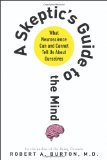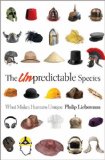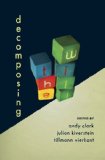new book – ‘A Skeptic’s Guide to the Mind: What Neuroscience Can and Cannot Tell Us About Ourselves’ by Robert Burton
April 23, 2013
A Skeptic’s Guide to the Mind: What Neuroscience Can and Cannot Tell Us About Ourselves by Robert Burton (St Martin’s Press, 2013)
Book description from the publisher:
What if our soundest, most reasonable judgments are beyond our control?
Despite 2500 years of contemplation by the world’s greatest minds and the more recent phenomenal advances in basic neuroscience, neither neuroscientists nor philosophers have a decent understanding of what the mind is or how it works. The gap between what the brain does and the mind experiences remains uncharted territory. Nevertheless, with powerful new tools such as the fMRI scan, neuroscience has become the de facto mode of explanation of behavior. Neuroscientists tell us why we prefer Coke to Pepsi, and the media trumpets headlines such as “Possible site of free will found in brain.” Or: “Bad behavior down to genes, not poor parenting.”
Robert Burton believes that while some neuroscience observations are real advances, others are overreaching, unwarranted, wrong-headed, self-serving, or just plain ridiculous, and often with the potential for catastrophic personal and social consequences. In A Skeptic’s Guide to the Mind, he brings together clinical observations, practical thought experiments, personal anecdotes, and cutting-edge neuroscience to decipher what neuroscience can tell us – and where it falls woefully short. At the same time, he offers a new vision of how to think about what the mind might be and how it works.
A Skeptic’s Guide to the Mind is a critical, startling, and expansive journey into the mysteries of the brain and what makes us human.
See also: Author’s website







